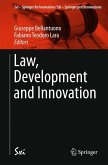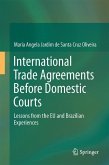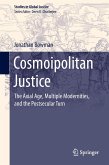Since the Second World War, States have increasingly relied upon economic sanctions programs, in lieu of military action, to exert pressure and generally to fill the awkward gap between verbal denunciation and action. Whether or not sanctions are effective remains a point of contention among policymakers. Frequently asked questions include whether any legal order constrains the use of sanctions, and, if so, what the limits on the use of sanctions are. This volume gathers contributions from leading experts in various relevant fields providing a seminal study on the limits of economic sanctions under international law, including accountability mechanisms when sanctioning States go too far. Where there are gaps in the law, the authors provide novel and important contributions as to how existing legal structures can be used to ensure that economic sanctions remain within an accepted legal order.
This book is a most valuable contribution to the literature in the fields of international economic law, public international law and international dispute resolution.
Ali Z. Marossi is an advisory board member of The Hague Center for Law and Arbitration. Marisa R. Bassett is Associate Legal Officer in the Office of the Prosecutor for the ICTY and former Associate at White & Case LLP.
This book is a most valuable contribution to the literature in the fields of international economic law, public international law and international dispute resolution.
Ali Z. Marossi is an advisory board member of The Hague Center for Law and Arbitration. Marisa R. Bassett is Associate Legal Officer in the Office of the Prosecutor for the ICTY and former Associate at White & Case LLP.








